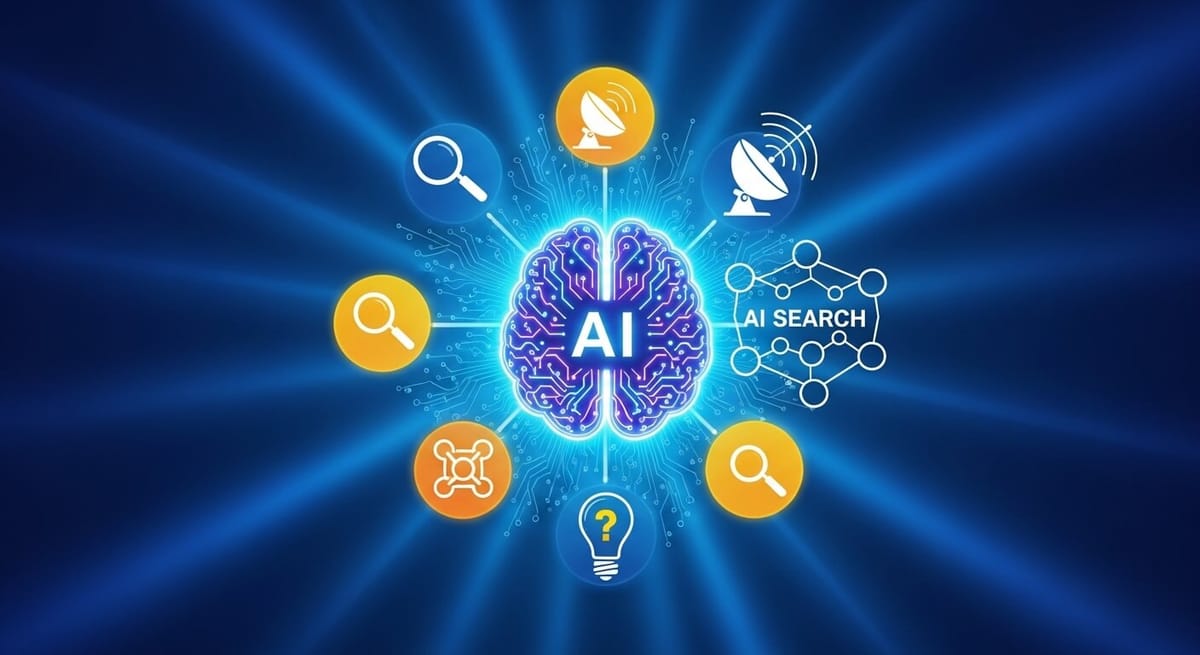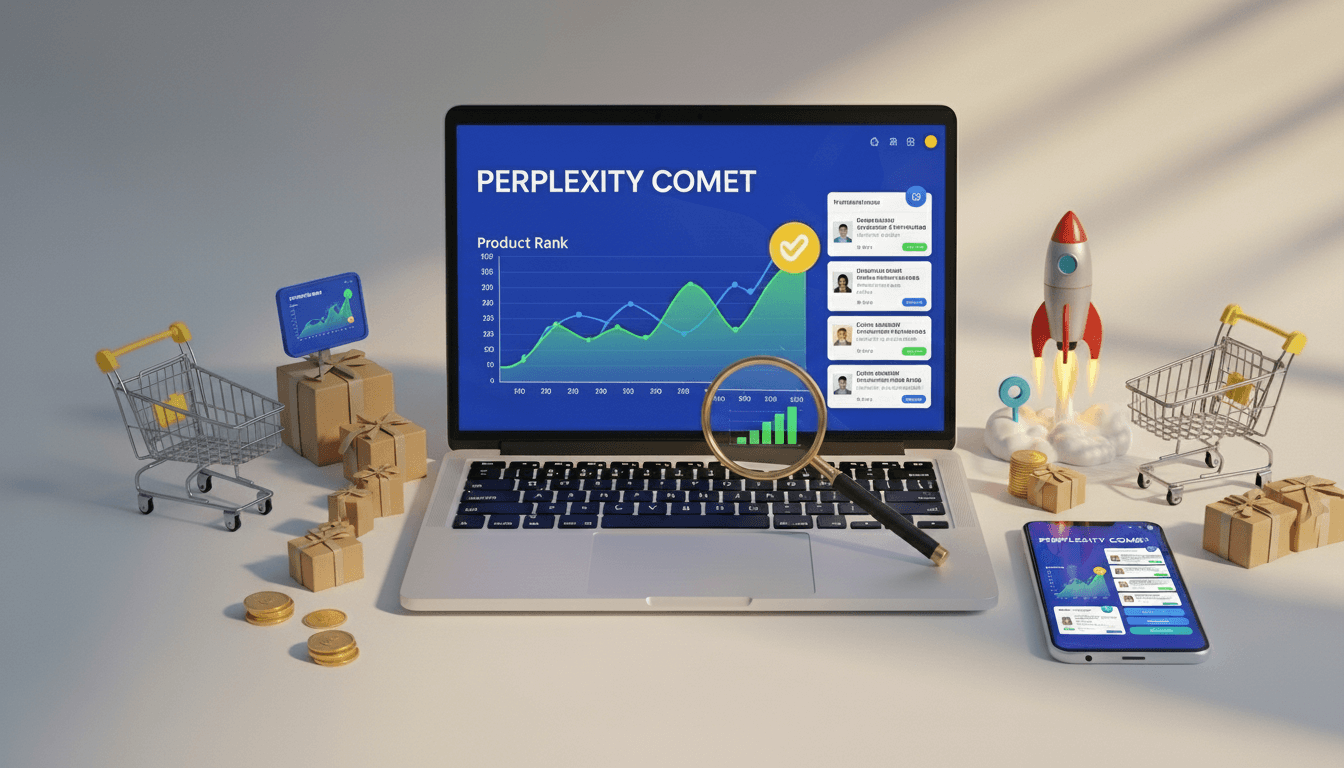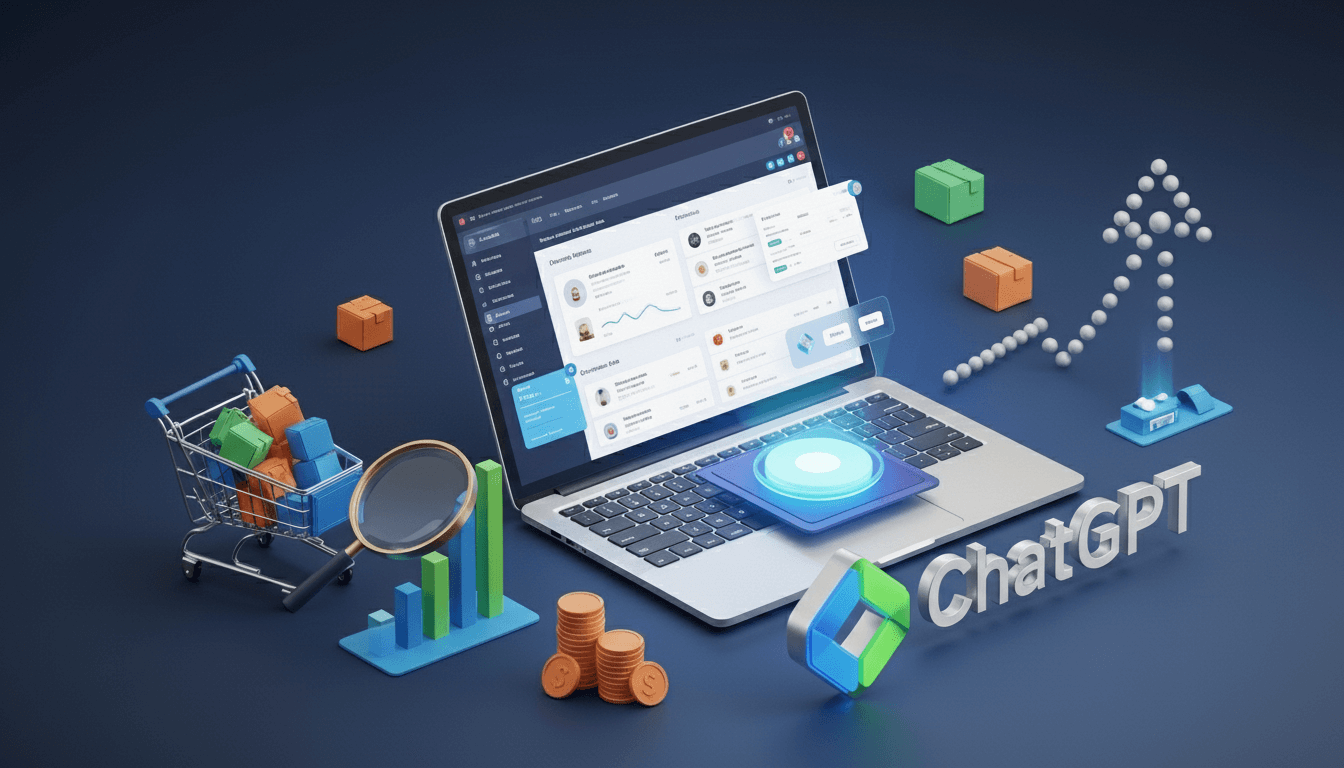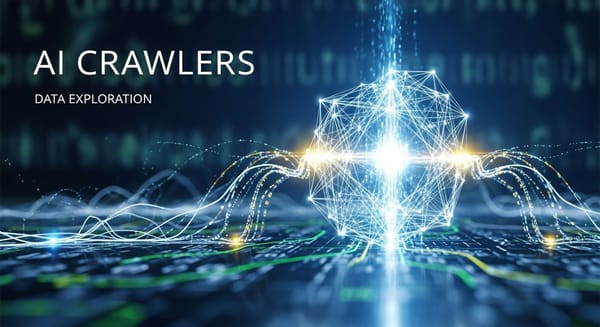Best AI Search Engines for E-commerce | Where to Optimize Your Products

The way shoppers discover products online is transforming rapidly, driven by Artificial Intelligence (AI). Unlike traditional search engines that return lists of product links based on keyword matching, AI-powered shopping platforms leverage Natural Language Processing (NLP), machine learning, and Large Language Models (LLMs) to understand shopping intent, deliver personalized product recommendations, and provide direct product answers.
This article explores the top AI-powered shopping platforms in 2025 where online retailers must optimize their products, compares their features to help you prioritize your optimization efforts, and offers strategies to ensure your products get discovered through Generative Engine Optimization (GEO) for e-commerce.
Why AI-Powered Product Discovery? Understanding the Shopping Shift
Traditional search engines like early versions of Google and Bing return lists of store links based on product keywords, requiring shoppers to sift through results and compare products manually. AI-powered shopping platforms prioritize shopping context, purchase intent, and personalization, delivering direct product recommendations, comparisons, and answers without requiring shoppers to visit multiple stores.
The Numbers Tell the Story:
With the AI search market projected to grow from USD 43.63 billion in 2025 to USD 108.88 billion by 2032 (CAGR of 14%), these platforms are becoming essential for shoppers seeking efficient, tailored product discovery experiences.
Critical Stats for Online Retailers:
- 67% of online shoppers now use AI assistants to research products before purchasing
- 60% of product searches result in AI recommendations, not clicks to store websites
- AI-referred shopping traffic converts 3.5x higher than traditional search traffic
- Voice shopping via AI grows 40% annually as shoppers ask Alexa and Siri for product advice
Whether you're looking to get products discovered in real-time shopping queries, multimodal product search (text, voice, images), product comparison engines, or e-commerce-specific optimization, AI shopping platforms offer critical opportunities for online retailers. Below, we compare the top platforms to help you prioritize your product optimization efforts.
Top AI-Powered Platforms in 2025
Here’s a curated list of leading AI search engines, highlighting their key features, unique strengths, use cases, and considerations to help you compare and select the best tool.
1. Google Gemini / AI Mode in Search / AI Overviews
- Key Features: Powered by Gemini 2.5, Google’s AI Mode offers Deep Search for in-depth research, Live capabilities for real-time camera-based searches (via Google Lens), Agentic capabilities for tasks like booking tickets, and Personal context for tailored results. It also generates custom charts and summaries.
- Strengths: Seamless integration with Google Chrome (features like Help me write and AI-powered history search), vast ecosystem, and high accuracy for diverse query types. AI Overviews have boosted usage by over 10% in markets like the U.S. and India.
- Best For: General users, researchers, and professionals needing versatile search with strong browser integration.
- Considerations: Extensive data collection may raise privacy concerns.
- Use Case: Ideal for users in the Google ecosystem wanting a familiar interface with advanced AI features.
2. Microsoft Copilot (formerly Bing AI)
- Key Features: Integrates generative AI via OpenAI’s technology, offering conversational search, real-time web results, and interactive follow-up questions. Copilot Mode in Microsoft Edge enhances search with summarization and content creation tools.
- Strengths: Strong real-time data retrieval and integration with Microsoft’s productivity suite (e.g., Office 365).
- Best For: Professionals and students needing conversational search and productivity tool integration.
- Considerations: May feel less polished than Google for some queries; tied to Microsoft’s ecosystem.
- Use Case: Great for users seeking real-time answers and workflow integration.
3. ChatGPT (OpenAI)
- Key Features: Conversational AI with GPT-4o, ideal for research, content ideas, coding, and detailed explanations. Handles complex queries with natural language responses.
- Strengths: Highly interactive, excels at creative and technical tasks.
- Best For: Writers, developers, and researchers needing conversational, in-depth answers.
- Considerations: Not primarily a search engine; limited real-time web access.
- Use Case: Suited for users needing detailed explanations or brainstorming support.
4. DeepSeek
- Key Features: Advanced analysis for long queries and large documents, with a large context window. Strong for technical research and coding assistance.
- Strengths: Handles complex, technical queries with precision.
- Best For: Engineers, researchers, and professionals working with technical or legal documents.
- Considerations: Niche focus, less suited for general searches.
- Use Case: Ideal for specialized research or coding tasks.
5. Claude AI (Anthropic)
- Key Features: Safety-focused AI assistant with clear, organized responses. Excels at long prompts, research, and writing support.
- Strengths: High clarity and safety, great for structured responses.
- Best For: Writers and researchers needing safe, reliable answers.
- Considerations: Limited real-time capabilities compared to others.
- Use Case: Best for users prioritizing clear, ethical responses for research or writing.
6. Answee (For E-Commerce Optimization)
- Key Features: Specialized e-commerce optimization platform designed for AI answer engines like ChatGPT, Claude, and Gemini. Offers comprehensive store management, product submission automation, real-time quota monitoring, and AI visibility analytics.
- Strengths: Purpose-built for e-commerce businesses to maximize product visibility in AI search results. Provides dedicated GEO tools, automated submissions to multiple search engines, and detailed analytics on AI visibility scores.
- Best For: E-commerce businesses, online retailers, and marketing teams focused on optimizing product visibility in AI-powered search platforms.
- Considerations: Niche focus on e-commerce; may be overkill for non-retail businesses or general content creators.
- Use Case: Ideal for online stores and product marketers ensuring products appear prominently in AI-driven recommendations.
Comparing AI Search Platforms: Which One Suits You?
To help you choose, here’s a comparison based on key user needs:
| Platform | Best For | Real-Time Data | Multimodal Search | Ecosystem Integration | Cost |
|---|---|---|---|---|---|
| Google Gemini | General use, research, productivity | Yes | Text, voice, image | Google ecosystem | Free (with limits) |
| Microsoft Copilot | Productivity, real-time answers | Yes | Text, voice | Microsoft ecosystem | Free (with limits) |
| ChatGPT | Creative tasks, technical research | Limited | Text | Limited | Free/Paid plans |
| DeepSeek | Technical research, coding | Limited | Text | Limited | Free/Paid plans |
| Claude AI | Writing, ethical research | Limited | Text | Limited | Paid |
| Answee | E-commerce AI optimization | Yes | Text, product data | E-commerce platforms | Paid |
How to Choose the Right AI Platforms for Your E-commerce Store
- For General Use: Google Gemini or Microsoft Copilot offer broad functionality and ecosystem integration.
- For Research: DeepSeek or Claude AI excel at in-depth, reliable answers.
- For Real-Time Data: Google Gemini, Microsoft Copilot, or Answee Engine (for e-commerce) are top choices.
- For Creative or Technical Tasks: ChatGPT or DeepSeek are best for coding and content creation.
- For E-commerce Optimization: Answee Engine provides specialized tools for retailers to maximize product visibility across AI platforms.
Challenges Online Retailers Face with AI Platforms
Challenge 1: Zero-Click Product Discovery
When AI platforms recommend products directly, shoppers may not visit your store, reducing opportunities for:
- Cross-selling and upselling
- Building customer relationships
- Collecting customer data
- Brand experience control
AI-recommended products carry platform trust, resulting in 3.5x higher conversion rates when shoppers DO click through. Being recommended is worth the trade-off.
Challenge 2: Product Data Accuracy
AI platforms may cite outdated pricing, incorrect specifications, or unavailable products if your data isn't fresh.
Use platforms like Answee that automatically sync real-time product data from your Shopify/WooCommerce store to all AI platforms.
Challenge 3: Competitive Product Visibility
When ChatGPT recommends 3-5 products for a shopping query, being #1 vs. #5 dramatically affects traffic. Competitors with better optimization win recommendations.
Monitor competitive product visibility and continuously optimize based on which products AI platforms prefer.
Challenge 4: Multi-Platform Optimization Complexity
Manually optimizing products for ChatGPT, Google, Perplexity, Claude, and Copilot requires 15-25 hours/week and deep technical knowledge.
Use Answee to increase product visibility across all 6 major AI shopping platforms simultaneously with one-click Shopify/WooCommerce integration.
Optimizing Products for AI Shopping Platforms (E-commerce GEO)
To ensure your products get discovered and recommended on AI shopping platforms, adopt Generative Engine Optimization (GEO) and E-commerce AEO strategies tailored to how AI systems process product data. Here are actionable steps:
1. Structure Product Data Clearly
Product Page Optimization:
- Use semantic HTML with logical product information hierarchy
- Implement comprehensive Product schema (price, availability, ratings, specifications)
- Include clear product titles with key attributes
- Add detailed technical specifications in structured tables
- Ensure mobile-first product page design
What AI Platforms Need:
- Product name and brand
- Price and currency
- Availability status (in stock, out of stock, pre-order)
- Product specifications and attributes
- Customer ratings and review counts
- Shipping information
- Return policy details
2. Allow AI Shopping Crawlers
Configure robots.txt to permit AI shopping bots:
# Allow AI shopping platforms to index products
User-agent: GPTBot
Allow: /products/
Allow: /collections/
Disallow: /cart/
User-agent: ClaudeBot
Allow: /products/
Allow: /collections/
User-agent: PerplexityBot
Allow: /products/
Allow: /collections/
User-agent: OAI-SearchBot
Allow: /products/
User-agent: ChatGPT-User
Allow: /products/Automated Solution: Answee monitors crawler activity across 6 major AI platforms simultaneously, alerting you to indexing issues in real-time.
3. Optimize Product Pages for Speed
Performance Requirements:
- Product pages load in under 2 seconds
- Key product information (title, price, availability) loads immediately
- Images optimized for web (WebP format, compressed)
- Minimal JavaScript blocking product data
Why Speed Matters: AI crawlers prioritize fast-loading product pages. Slow pages get indexed less frequently or skipped entirely.
4. Use Product Schema Markup
Essential Schema Types:
json
{
"@context": "https://schema.org",
"@type": "Product",
"name": "Wireless Noise-Cancelling Headphones - SoundMax Pro",
"description": "Professional wireless headphones with 30-hour battery, active noise cancellation, and ergonomic design for travel and work.",
"image": "https://yourstore.com/products/soundmax-pro.jpg",
"brand": {
"@type": "Brand",
"name": "SoundMax"
},
"offers": {
"@type": "Offer",
"price": "149.99",
"priceCurrency": "USD",
"availability": "https://schema.org/InStock",
"url": "https://yourstore.com/products/soundmax-pro"
},
"aggregateRating": {
"@type": "AggregateRating",
"ratingValue": "4.7",
"reviewCount": "847"
}
}Shopify: Most themes include basic schema; enhance with apps WooCommerce: Use Rank Math or Yoast for comprehensive schema Automated: Answee validates and enhances product schema automatically
5. Keep Product Information Fresh
Update Frequency:
- Real-time: Price and availability changes
- Daily: Product reviews and ratings
- Weekly: Product descriptions and specifications
- Monthly: Product images and seasonal content
Display Recency Signals:
- Last updated dates on product pages
- "In stock as of [date]" indicators
- "Price last updated [date]" timestamps
- Recent customer review highlights
Automated Solution: Answee automatically syncs product data from Shopify/WooCommerce stores in real-time, ensuring AI platforms always have current information.
6. Write for Shopping Intent
Use conversational, question-based product content:
Instead of: "Premium Wireless Headphones"
Use: "Best Wireless Headphones for Travel: 30-Hour Battery, Noise Cancellation, Foldable Design"
Answer Shopping Questions in Product Descriptions:
- "Who are these headphones best for?"
- "How do these compare to [competitor]?"
- "What makes these different from cheaper options?"
- "Are these comfortable for all-day wear?"
Include Use Case Scenarios:
- "Perfect for frequent travelers who need all-day comfort"
- "Ideal for remote workers in noisy environments"
- "Great for students studying in shared spaces"
7. Enable AI-Friendly Product Access
For E-commerce Platforms:
- Provide clean product feed APIs
- Enable XML sitemap for products
- Allow product catalog crawling
- Implement proper product URL structure
For Automated Optimization:
Use Answee for programmatic product submission to all major AI shopping platforms:
- Automatic product catalog extraction
- Real-time product data synchronization
- Shopping query optimization
- Multi-platform submission automation
8. Build Product Authority Signals
AI platforms prioritize products with authority indicators:
Customer Reviews (Critical):
- 50+ reviews minimum per product
- 4.0+ average rating
- Recent reviews (within 6 months)
- Detailed reviews with use case context
Social Proof:
- Sales volume indicators ("5,000+ sold")
- Popularity badges ("#1 best-seller")
- Expert endorsements
- Industry awards and certifications
Trust Signals:
- Clear return policy
- Warranty information
- Customer support availability
- Secure checkout badges
Conclusion | The AI Shopping Revolution for E-commerce
AI-powered shopping platforms are redefining product discovery, offering personalized, efficient, and context-aware alternatives to traditional product search. For online retailers, optimizing products for these platforms is no longer optional—it's essential for competitive survival.
The online stores winning in 2025 aren't just optimizing for Google Shopping—they're ensuring products get discovered and recommended across ChatGPT, Perplexity, AI Overview, Claude, and Microsoft Copilot. The window for first-mover advantage is closing rapidly. Optimize your products for AI discovery today, or watch competitors dominate the recommendations shoppers trust tomorrow.
FAQs about the Ecommerce AI Search Engines
AI shopping platforms like ChatGPT, Perplexity, and Google AI Overview use natural language processing to understand conversational shopping queries and provide direct product recommendations with reasoning. Unlike traditional Google Shopping that shows product listings based on keywords, AI platforms answer questions like "What's the best laptop for video editing under $1500?" with specific product recommendations, comparisons, and purchase advice.
Prioritize Google AI Overview (120M+ monthly shopping queries, integrates with existing Google Shopping) and ChatGPT (85M+ shopping queries, highest conversion rates). These two platforms represent 70%+ of AI shopping traffic and should be your primary optimization focus.
AI enhances rather than replaces traditional product search. AI platforms are becoming the preferred discovery method for 67% of shoppers, but they complement rather than eliminate Google Shopping. Online retailers need BOTH optimizations for comprehensive product visibility.
AI platforms perform best when product data is clean, structured, and easy for them to interpret. Stores can improve visibility by organizing product details, updating descriptions, and ensuring metadata is clear. Many retailers also use catalog-optimization tools that scan the site through the sitemap and prepare product information in a format AI systems understand. These tools help bridge gaps that manual SEO alone cannot address.
Not always—but they help. While manual optimizations are possible, most growing stores use supporting tools that automatically analyze their site, identify missing data, and format product information in a way that AI platforms prefer. Some solutions even read the sitemap directly and distribute improved product signals across multiple AI engines. Using such tools reduces time, boosts accuracy, and increases the chances of appearing in AI-generated product recommendations.





